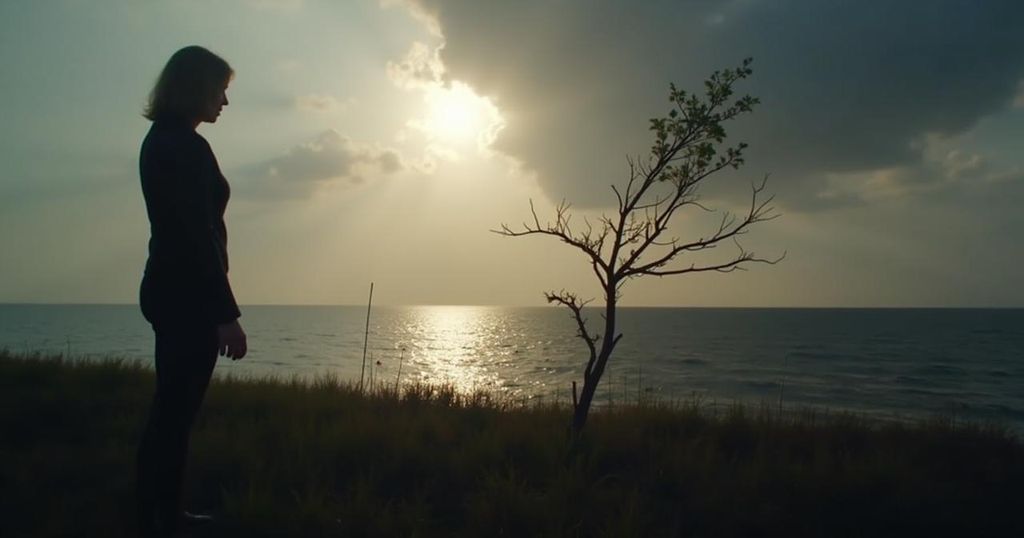CBS Moderator Norah O’Donnell faced criticism for diverting a question about Hurricane Helene into a climate change discussion during a debate with J.D. Vance and Tim Walz. Viewers pointed out her lack of focus on the immediate suffering in North Carolina, while Walz also leaned toward political rhetoric rather than addressing the storm’s impacts. The debate highlighted ongoing tensions in political discourse around humanitarian crises and climate issues.
Norah O’Donnell, the CBS moderator, recently faced backlash for her handling of a question pertaining to Hurricane Helene during a debate segment with vice presidential candidates J.D. Vance (R) and Tim Walz (D). Instead of focusing on the immediate disaster affecting western North Carolina, where the hurricane has resulted in over 160 fatalities and many missing persons, O’Donnell steered the discussion towards climate change implications. She began her inquiry by highlighting the severe consequences of the hurricane, only to pivot to an assertion that scientists attribute the increasing severity of such storms to climate change. This shift was perceived as lacking sensitivity to the ongoing devastation and was criticized for exhibiting a bias typical of CBS’s coverage styles. Viewers expressed their disapproval, observing that the discussion singularly emphasized climate change rather than the humanitarian crisis at hand. The storm in question, categorized as a Category 4, brought with it destructive winds surpassing 100 MPH along with severe rainfall and subsequent flash flooding. O’Donnell’s line of questioning did not escape criticisms directed toward Walz either; his responses appeared more politically charged rather than genuinely addressing the plight of those impacted by the hurricane. In a parallel debate about Iran’s assault on Israel, Walz made politically charged remarks, attributing the crisis to former President Trump’s alleged leniencies towards authoritarian regimes, rather than addressing the situation’s immediate humanitarian aspects. The debate ensued with moments of contention, such as J.D. Vance’s jibes at Vice President Kamala Harris’s campaign slogans, highlighting the charged atmosphere of current political discussions. The exchanges were further complicated by instances of abrupt moderation, such as microphone muting when the candidates began to engage in an open discussion.
Hurricane Helene significantly impacted western North Carolina, leaving behind a trail of devastation including deaths and missing persons. The media’s portrayal of natural disasters has increasingly intertwined with discussions on climate change, which some argue detracts from the immediate human suffering caused by such events. Norah O’Donnell’s approach to moderating discussions on these topics can be seen as symptomatic of a broader trend within journalism that prioritizes political narratives over the realities faced by affected populations. The dynamic of debates among candidates often reflects the prevailing political tensions, with each side attempting to navigate complex issues while addressing their party’s agendas. Thus, it is crucial to examine not only the factual circumstances surrounding such events but also how they are represented in public discourse.
In summary, Norah O’Donnell’s handling of the Hurricane Helene question during the vice presidential debate drew substantial criticism for perceived bias and insensitivity, as it shifted focus from the immediate human tragedy to climate change discourse. This incident raises concerns regarding the role of moderators in balancing political discussions with the urgent needs of affected individuals. The debate itself illustrated the often contentious nature of political dialogue, characterized by attempts to politicize pressing humanitarian issues rather than address them directly. As discussions around disasters and climate change evolve, the need for empathetic and effective communication in media becomes paramount.
Original Source: www.outkick.com







